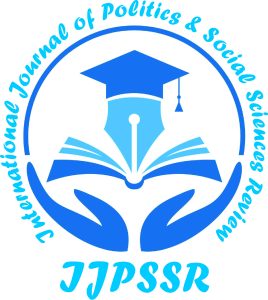International Journal of Politics & Social Sciences Review
This study in the handicraft industry in Arusha, Tanzania, was done to determine the influence of coopetition in generic advertising on the profitability of Micro and Small Enterprises (MSEs). It employed the theory of coopetition and resource dependence theory as theoretical frameworks. The objective was to investigate the influence of horizontal coopetition in generic advertising on MSEs’ profitability, with MSEs’ resource interdependence moderating the influence. Data collected by survey approach were quantitatively analysed using the moderated multiple linear regression (MLR) model to test the hypotheses. The results demonstrated that coopetition in generic advertising positively and significantly influenced the MSE’s profitability before and after moderation. The resource interdependence had no statistically significant moderating effect on the influence of horizontal coopetition in generic advertising on the MSE profitability. The results mean that coopetition occurs in all business cycle phases to create joint and firm profitability and that horizontal coopetition is a viable business model that can aid MSEs to be profitable and sustainable. More research needs to be done in a rural setting, involving more variables of coopetition in generic advertising and factoring in the MSE attributes as moderators. The study recommends similar studies on coopetition from industry-specific MSEs and in more tourist areas.
Generic Advertising,
Handicraft,
Horizontal Coopetition,
Micro and Small Enterprise,
Profitability
The study explores and determines the key issues, problems and challenges present in the education system of Pakistan and also suggest some solutions in order to tackle these issues. Education plays a dynamic role in governance, management, leadership and control in the society. The purpose of the educational organizations is to enrich the people with knowledge and wisdom in order to develop them physically, psychologically and publicly. It develops and supports the cultural, financial, societal, and political life of the nation. It is a fact that education promotes the change in the communal, radical and cultural situation of the country. Education is very strongly linked with the development and prosperity of the country. In Pakistan, the quality of primary and secondary education is declining day by day. Even after more than seven decades, the indicators are not displaying progressive consequences. Percentage of students are falling day by day from schools. The decline in the quality of education rate is mostly a result of the quality of teachers, students, schools, administration, affordability, library facilities and research laboratories.
As a system for distribution and social organization, meritocracy has not reduced inequalities or increased social mobility, the things that made it appealing in the first place. Until now, it has been mostly criticized for its failure to live up to the expectation that it would be an equalizing mechanism, and critics have pointed to problems with the correct and impartial implementation of its methods. Nonetheless, this essay adds to what is known as principled critique, which opposes meritocratic systems, and addresses how meritocracy misunderstands human motivation and the relationship it has with effort. It also discusses how the empirical sequence of events does not always follow the order meritocracy requires or presupposes. The mismatch of meritocracy with the human condition and social context, which stems from its ethical rather than empirical foundations, makes it impossible for it to reduce inequality or counterbalance privilege.
Meritocracy;
Principled Critique;
Motivation;
Effort;
Inequality;
Competition.
This paper reports about students’ experiences of e-tutors’ facilitation of technological content knowledge (TCK) for the design process content in Open Distance eLearning (ODeL) environment. The unique nature of the ODeL environment necessitates student assistance from qualified e-tutors. This paper reports about the students’ experiences with e-tutors’ facilitation of technological content Knowledge (TCK) for the design process content in Open Distance eLearning (ODeL) environment. Competent e-tutors are defined in this paper as those who are capable of assisting students who use Technological Content Knowledge (TCK). ‘What are students’ experiences of e-tutors’ facilitation of TCK in the Open Distance eLearning (ODeL) environment?’ is a fundamental inquiry in order to achieve this. As a result, it was determined that their e-tutors lacked the ability to use TCK to offer the make stage of their design process learning. This conclusion was reached based on information received from 350 students who had registered in a module for a year-long program. The e-tutors should be further enhanced with training to teach the design process with TCK in the context of ODeL, according to one recommendation.
Technological Content Knowledge,
Design Process;
Open and Distance e-Learning;
e-tutoring

